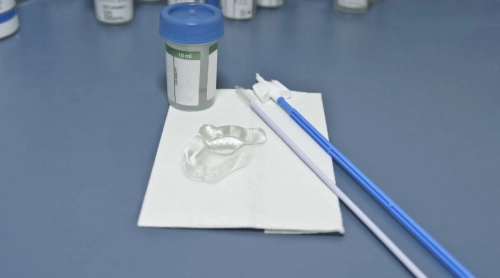AMH blood test for fertility (AMH血液测试用于生育能力评估)
RM200.00
Category: Women’s Health
Quantity: In Stock
Understanding AMH in Fertility
AMH is a hormone produced by the granulosa cells in ovarian follicles. It serves as a key indicator of a woman's ovarian reserve. Unlike other hormones involved in the reproductive cycle, such as FSH (Follicle Stimulating Hormone) and Estradiol, AMH levels remain relatively stable throughout the menstrual cycle, making it a reliable marker for fertility assessment.
AMH Changes with Age
A woman is born with a finite number of eggs, which decrease both in quantity and quality with age. Correspondingly, AMH levels decline as a woman ages, reflecting the diminishing ovarian reserve. This decline is gradual but becomes more pronounced as a woman approaches her late 30s and 40s.
What AMH Tells Us
Fertility Assessment
High AMH levels generally indicate a good ovarian reserve, suggesting a higher probability of successful pregnancy either naturally or through fertility treatments. Conversely, low AMH levels might indicate a reduced ovarian reserve, which can be a challenge in conceiving.
Predicting Menopause
While AMH cannot definitively predict the onset of menopause, significantly low levels in younger women might indicate an earlier approach to menopause.
Guiding Fertility Treatment
In assisted reproductive technologies like IVF (In Vitro Fertilization), AMH levels help in customizing treatment protocols. They guide in determining the dosage of ovarian stimulation medications, thereby optimizing the chances of successful egg retrieval.
Limitations
It's crucial to understand that AMH is just one piece of the fertility puzzle. It does not directly measure egg quality or guarantee pregnancy. Other factors, such as the health of the fallopian tubes, the sperm quality, and the overall health of the woman, are equally important.
Conclusion
AMH testing offers a window into a woman's reproductive lifespan and potential fertility challenges. However, it's important to interpret AMH levels in conjunction with other tests and a comprehensive medical history. Consulting with a fertility specialist is crucial for a personalized understanding and approach to fertility based on AMH and other reproductive health indicators.
抗穆勒激素(AMH)在生育测试中发挥着关键作用,为女性的卵巢储备——她所剩的卵子数量提供了宝贵的见解。以下是对AMH及其在生育测试中重要性的全面概述。
理解生育中的AMH
AMH:生物学概述
AMH是卵巢滤泡中颗粒细胞产生的一种激素。它是女性卵巢储备的一个关键指标。与生殖周期中涉及的其他激素(如FSH(促卵泡激素)和雌二醇)不同,AMH水平在整个月经周期中相对稳定,使其成为生育评估的可靠标记。
AMH随年龄的变化
随年龄递减
女性天生就有一定数量的卵子,随着年龄的增长,这些卵子的数量和质量都会减少。相应地,随着女性年龄的增长,AMH水平下降,反映了卵巢储备的减少。这种下降是渐进的,但在女性接近40岁时变得更为明显。
AMH告诉我们什么
生育评估
高AMH水平通常表明良好的卵巢储备,表明无论是自然受孕还是通过生育治疗成功怀孕的可能性更高。相反,低AMH水平可能表明卵巢储备减少,这可能是受孕的挑战。
预测更年期
虽然AMH不能明确预测更年期的开始,但年轻女性中显著低的AMH水平可能表明更年期的提前来临。
指导生育治疗
在辅助生殖技术(如体外受精-IVF)中,AMH水平有助于定制治疗方案。它们指导确定卵巢刺激药物的剂量,从而优化成功取卵的机会。
局限性
重要的是要理解,AMH只是生育难题的一部分。它并不直接衡量卵子质量或保证怀孕。其他因素,如输卵管的健康、精子质量以及女性的整体健康状况,同样重要。
结论
AMH测试为女性的生殖寿命和潜在的生育挑战提供了一个窗口。然而,解读AMH水平时,需要结合其他测试和全面的病史。咨询生育专家对于基于AMH和其他生殖健康指标的个性化生育理解和方法至关重要。
Inquiry - AMH blood test for fertility (AMH血液测试用于生育能力评估)












